LATEST INSIGHTS
Your Present Location: LATEST INSIGHTS-
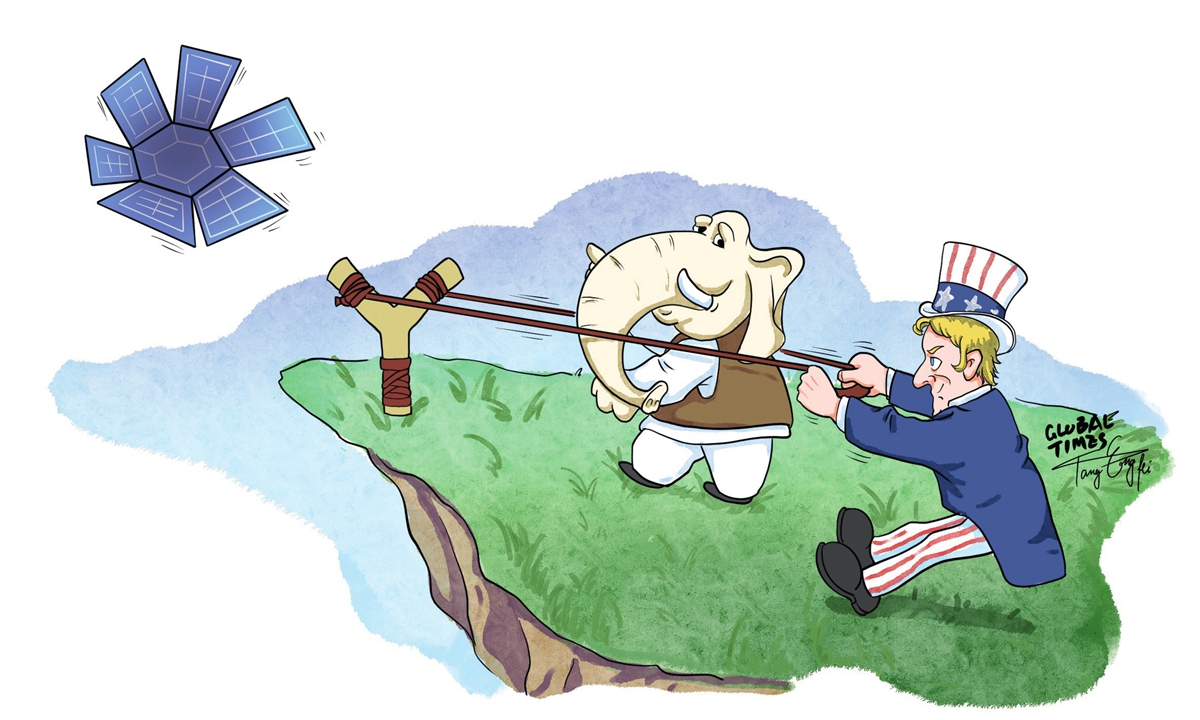
US efforts to isolate China from solar industry to end in futility
A US development agency focusing on emerging markets announced on Tuesday approval to finance the country's largest solar manufacturing company to build a factory in India, which has been widely viewed as a move aiming to weaken China's leading role in the industry.
2021-12-14 -

Wang Yiwei: How does the Belt and Road Initiative benefit people around the world?
2021-12-14 -
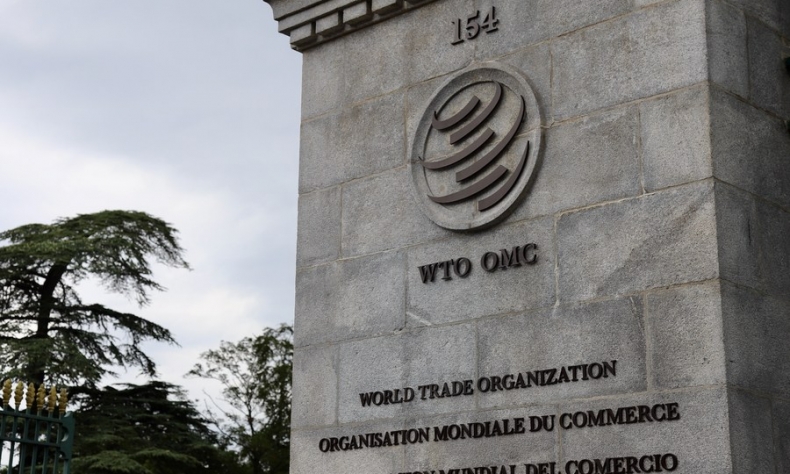
He Weiwen: Twenty Years of China in WTO: from a New Comer to a Key Player
December 11, 2021 marks the 20th anniversary of China’s accession to WTO. The past 20 years history of China in WTO has proved what Pascal Lami, then EU Trade Commissioner and later WTO Director General had said before China’s accession: “China’s accession will make WTO a genuine global organization.”
2021-12-14 -
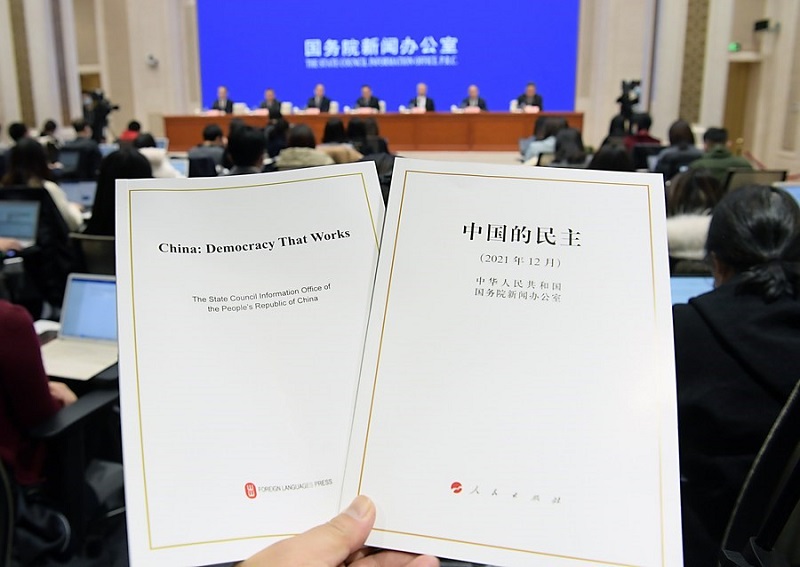
William Jones: The True Test of Democracy – The People's Well-being
China’s State Council Information Office on December 4 released its latest White Paper titled “China: Democracy That Works,” providing an in-depth picture of the workings of China’s unique consultative and governance system or what is now known as China’s “whole-process people’s democracy.” The publication was released just a week prior to U.S. President Joe Biden putting on his self-styled Summit for Democracy, in which many of those “Western democracies” which have totally bungled the COVID-19 pandemic, will acclaim the “superiority” of their system over that of China and some other countries.
2021-12-13 -
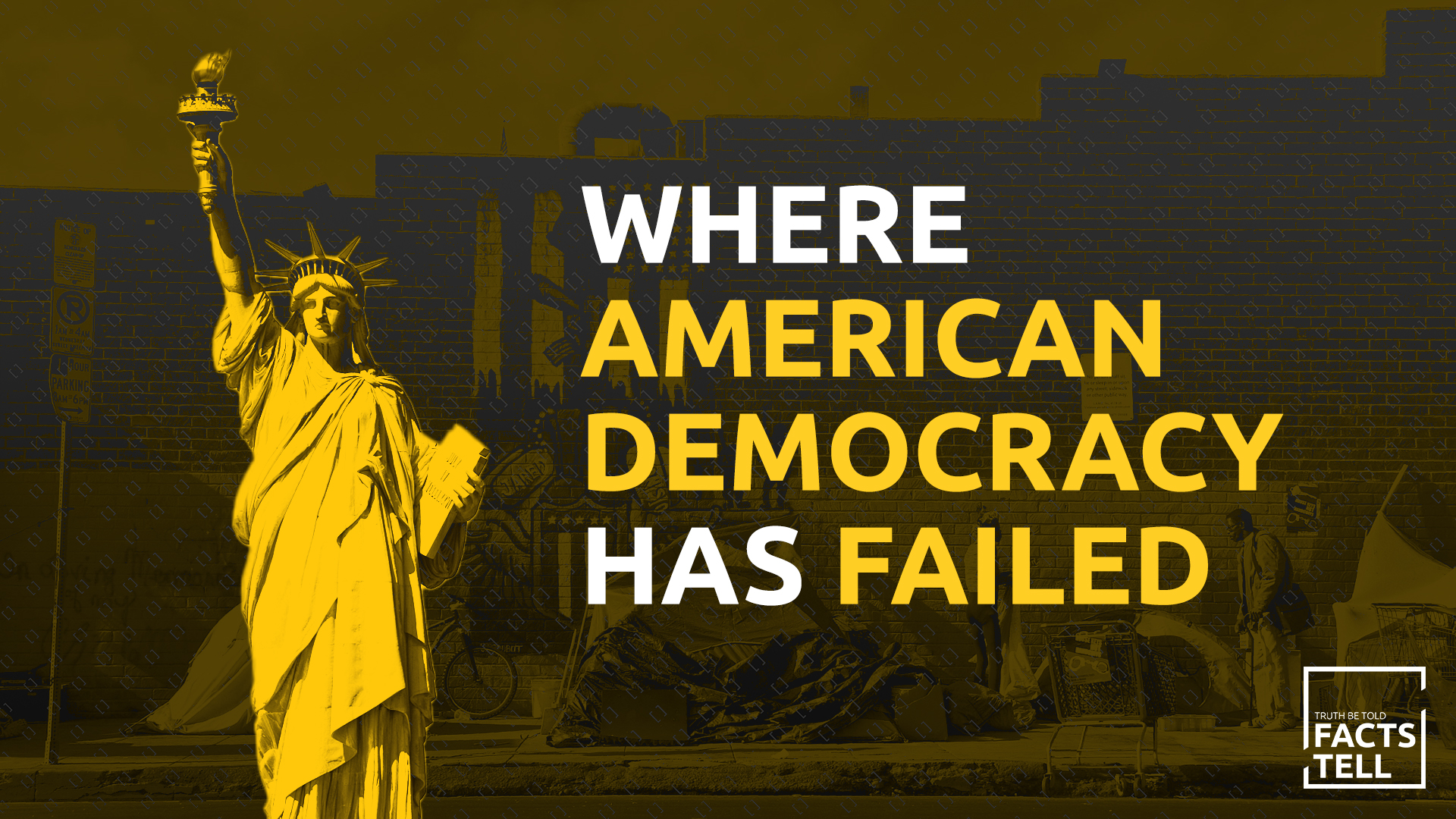
CGTN: Where American democracy has failed, as told by facts
Editor's note: The United States of America claims to be the defender of democratic values and human rights. It also dictates what those are for the world. But the truth lies in facts. To help our readers get answers to some of the most heated questions about U.S. democracy, CGTN's "Facts Tell" series lets the facts speak for themselves.
2021-12-13 -
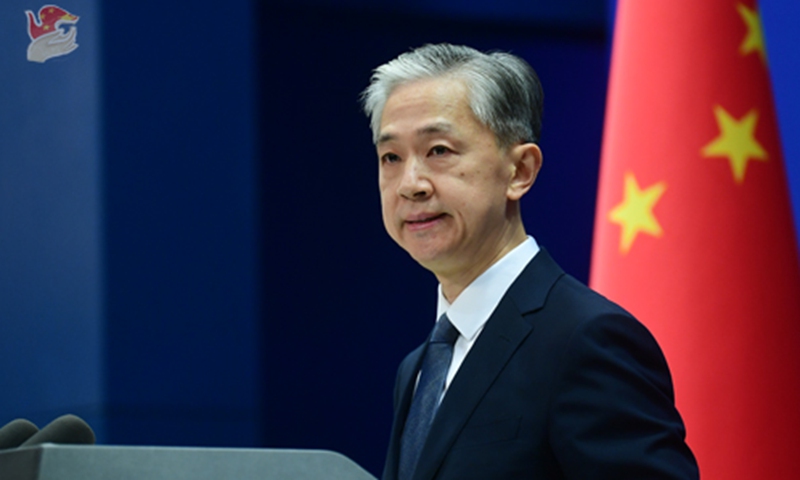
Zhou Rong: China-Pakistan trade setting records in 2021
Bilateral trade between China and Pakistan, and exports from Pakistan to China, are both running at record levels for the year to date, according to a Chinese official on Wednesday.
2021-12-09 -
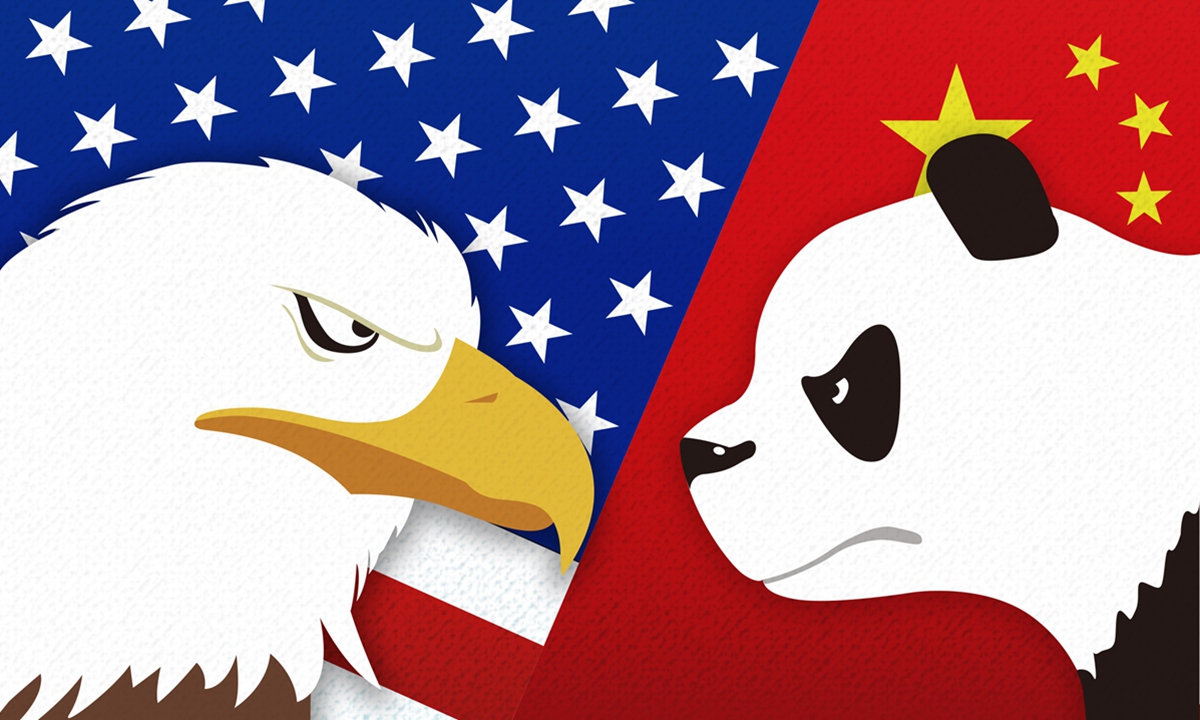
Ding Gang: US cannot ‘decouple’ from Made in China
Washington is in a hurry of late. It has to contain China's high-tech development on the one hand and is anxious to collect some so-called democratic countries to establish a "democratic front" against China on the other hand.
2021-12-09 -
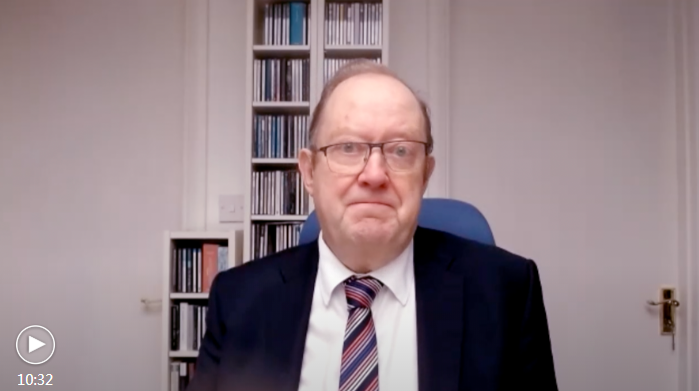
John Ross: The framework and delivery on human rights and democracy in China and via socialism are far superior in China to the West
2021-12-09 -
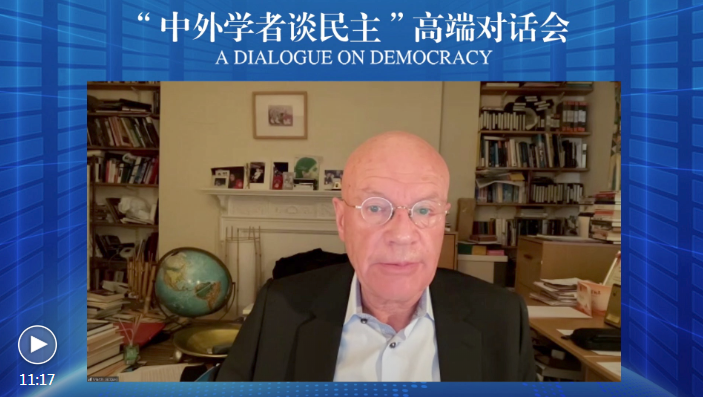
Martin Jacques: From Truman to Biden: U.S. hegemony in the name of democracy
Discussions on the definition of democracy have been heating up as think tanks and academic institutions hold dialogues and forums to discuss the topic.
"American democracy" is one of the buzzwords, with discussions by both politicians and scholars on how the current U.S. foreign policy aims to divide the world in the name of "democracy." It is using the Cold War mindset to maintain its hegemony.2021-12-09 -
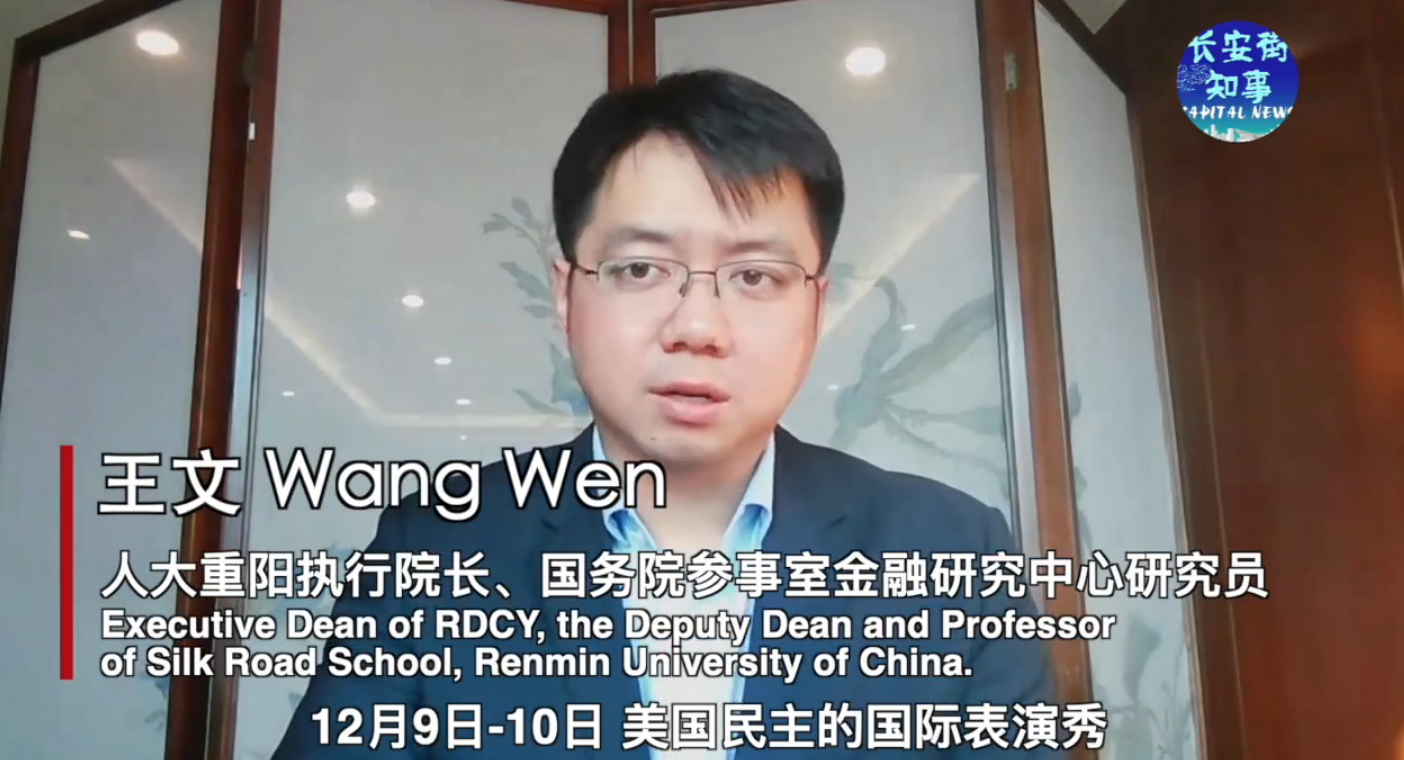
Wang Wen: Ten Questions for American Democracy
2021-12-08 -
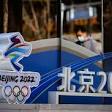
Reuters: China condemns U.S. diplomatic boycott of Beijing Olympics
China on Tuesday accused the United States of betraying Olympic principles and said Washington would "pay a price" for its diplomatic boycott of the upcoming Winter Games in Beijing even as a top International Olympic Committee official voiced respect for the U.S. decision.
2021-12-08 -
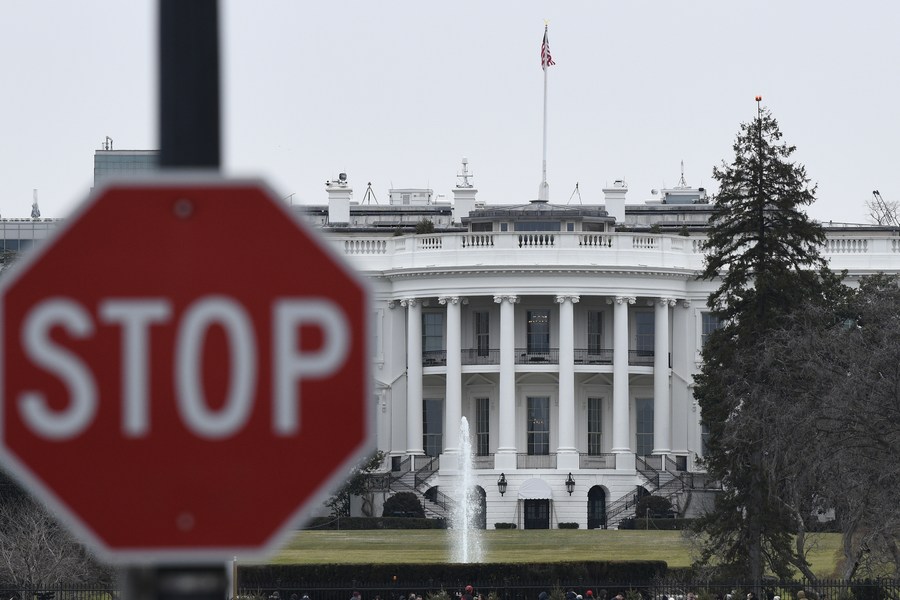
China Daily: Think tank's report questions essence of US-style democracy
Democracy is the right of the people of all countries, not the patent of several countries, said a newly released report that targets the declaration of some countries claiming their own monopoly on the definition or model of "democracy".
2021-12-07 -
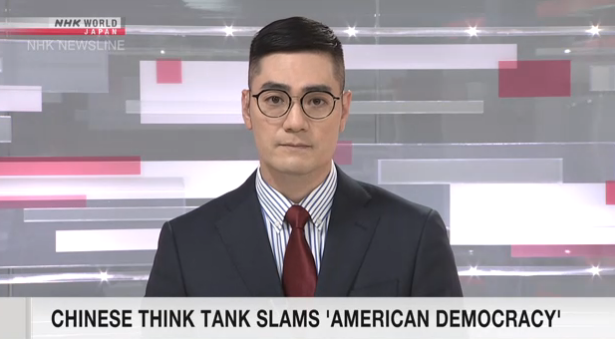
NHK Japan: Chinese think tank slams 'American democracy'
A Chinese think tank has published a report that criticizes American democracy.
The paper entitled 'Ten Questions for American Democracy' was released by the Chongyang Institute for Financial Studies at Renmin University of China on Monday.2021-12-07 -
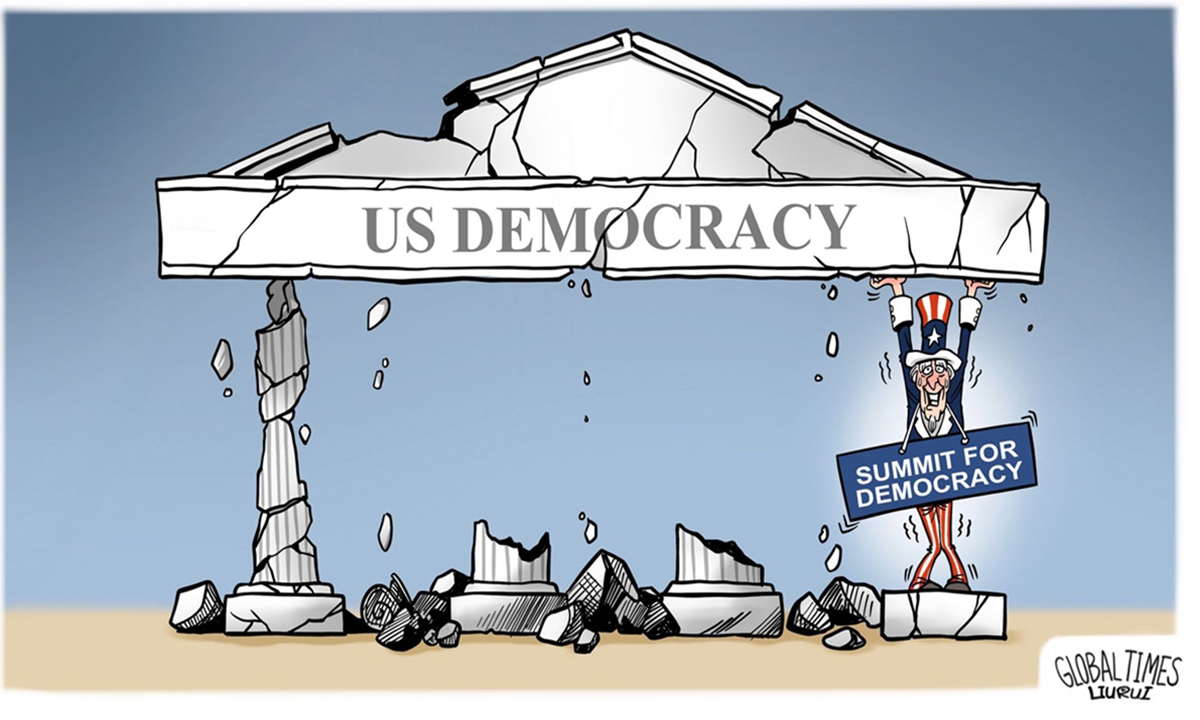
Press TV: Chinese think tank: American democracy caused social disorder in US, instability in world
The American version of democracy has caused social disorder and various other problems within the United States, while inciting chaos in nations that imported the model, a Chinese think tank says.
2021-12-07 -
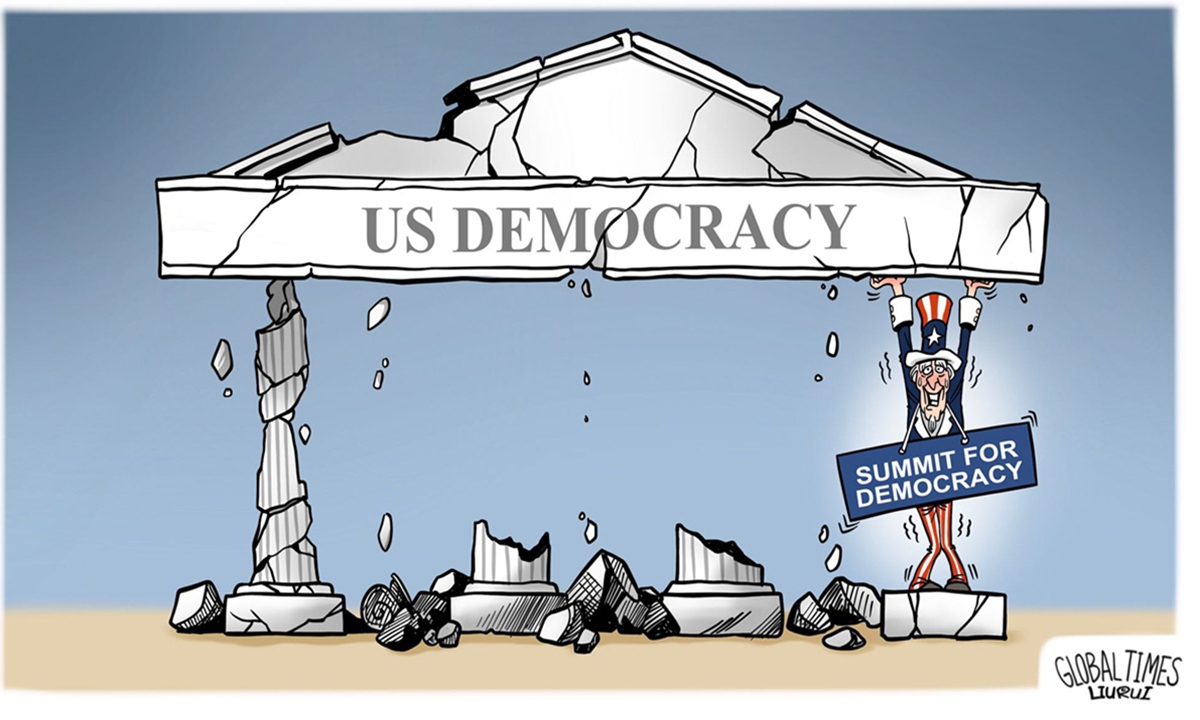
Global Times: 10 Questions for American Democracy
Democracy should be the right enjoyed by people of different countries rather than the privilege of certain countries. As the so-called Summit for Democracy, US' newest international charade, is about to kick off on Thursday, the Chongyang Institute for Financial Studies, Renmin University of China, released on Monday the research report "Ten Questions for American Democracy." The report raises 10 questions about American democracy, hoping to help the world fully understand democracy and promote shared values for all humanity.
2021-12-07 -
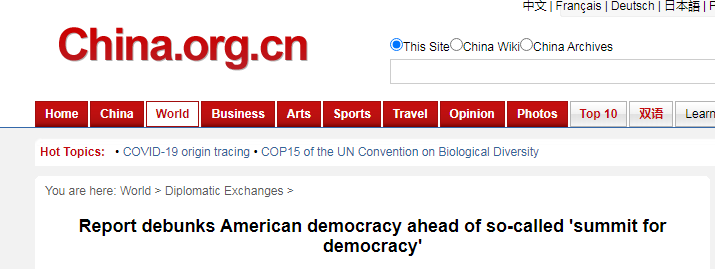
China.org.cn: Report debunks American democracy ahead of so-called 'summit for democracy'
A China-based research institution released a report on Monday titled "Ten Questions for American Democracy" debunking American democracy ahead of a U.S.-backed virtual event titled "summit for democracy."
2021-12-07 -
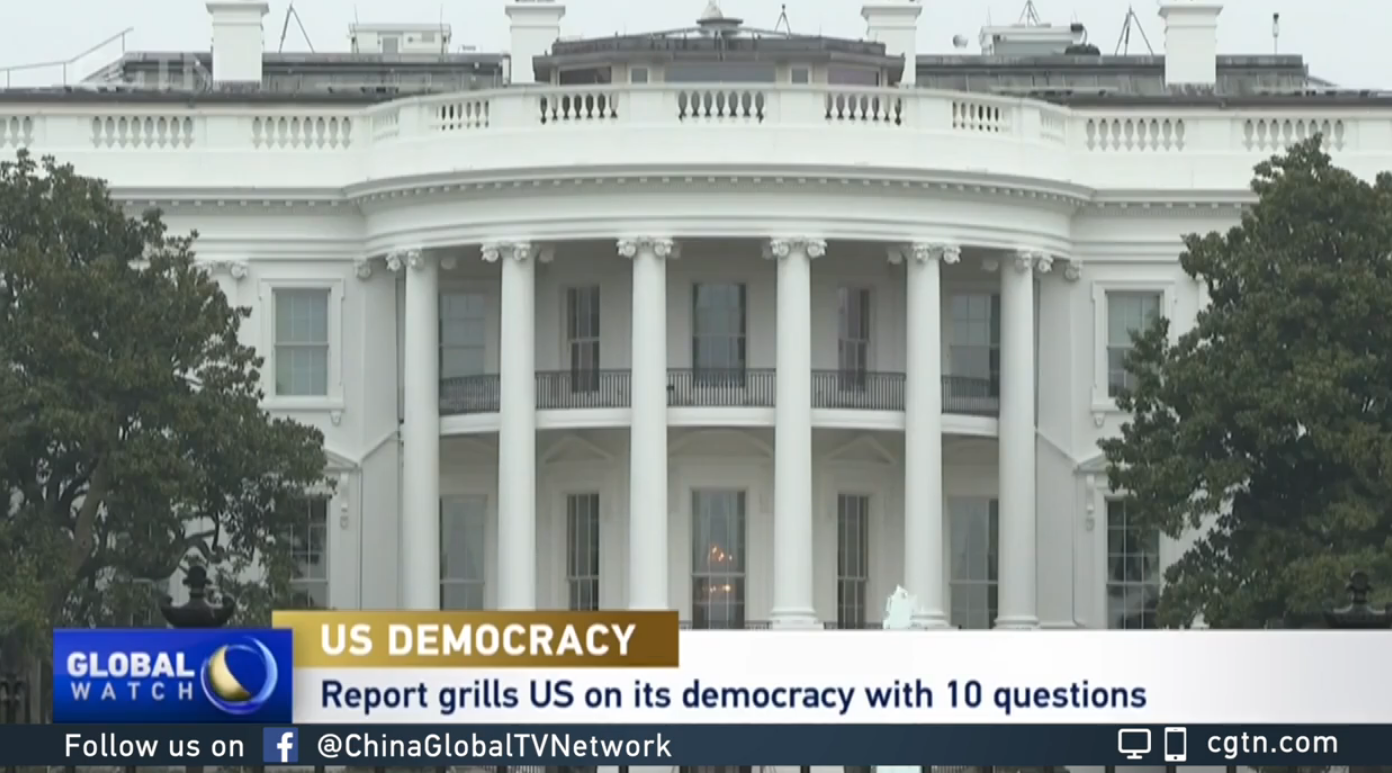
CGTN: China questions American democracy in 10 aspects ahead of 'Summit for Democracy'
Is democracy for the majority or the minority? Does democracy improve people's well-being or deepen their suffering? Will democracy help realize dreams or bring nightmares? These were some of the questions asked by a Chinese think tank's report on Monday.
2021-12-07 -
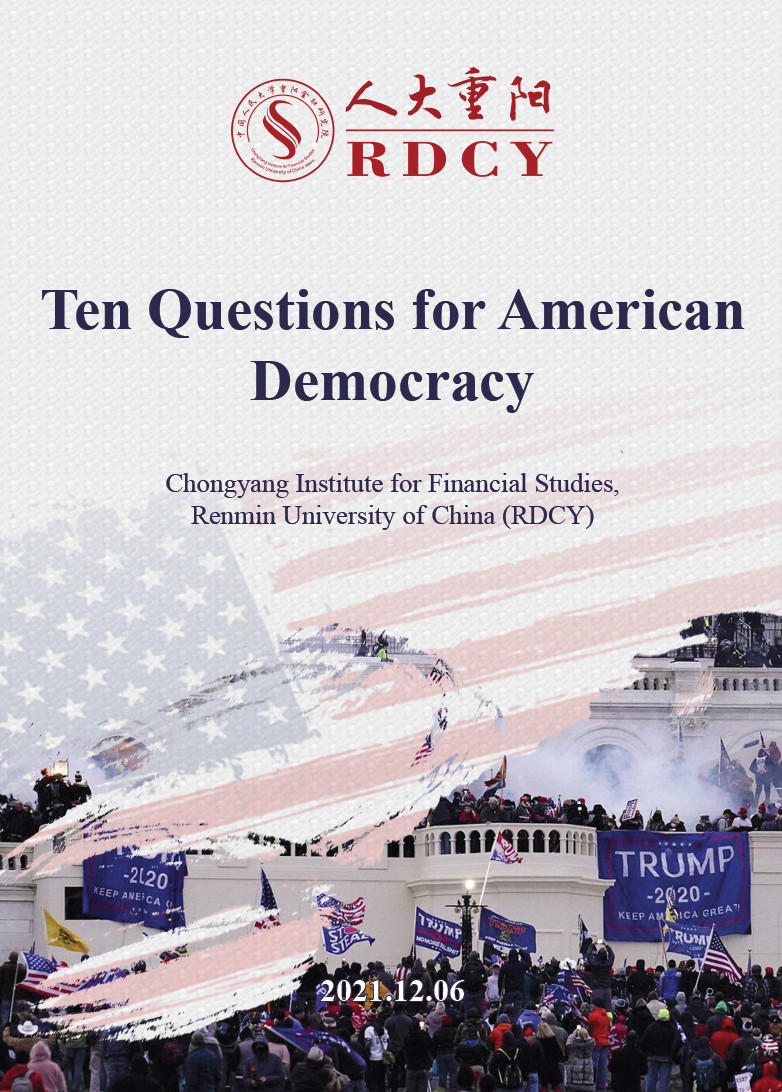
【2021-12-06】10 Questions for American Democracy
Full Report of 10 Questions for American Democracy. Democracy is a right of all peoples, not a monopoly of individual countries. The United States, as the world’s only superpower, has in recent years used democracy as a reason to violate human rights and tear apart society, while externally it has used democracy as a reason to maintain hegemony, interfere in the internal affairs of other countries and undermine the international order. On December 9-10, 2021, the United States will launch the "Leaders' Summit on Democracy", and once again stage a new show of American democracy. This forces think tanks to speak out for justice and truth, and release the research report "Ten Questions for American Democracy".
2021-12-05 -
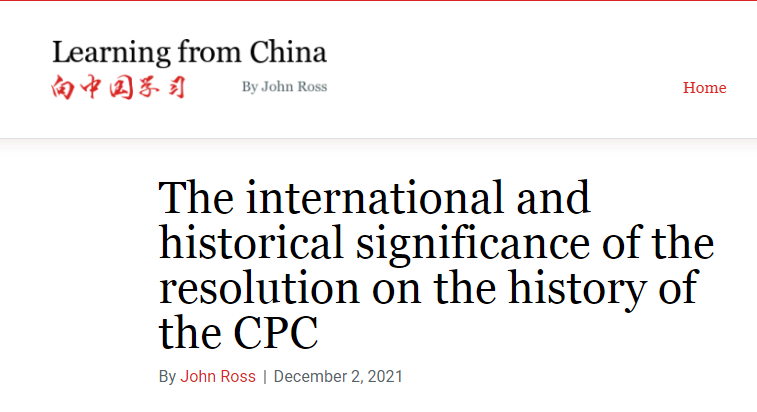
The international and historical significance of the resolution on the history of the CPC
The “Resolution on the Major Achievements and Historical Experience of the Party over the Past Century”, adopted by the Sixth Session of the 19th Central Committee of the Communist Party of China (CPC) in November 2021, is, rightly, regarded as in the first place an issue for China itself. As the Resolution notes in its first sentence: “Since its founding in 1921, the Communist Party of China (CPC) has remained true to its original aspiration and mission of seeking happiness for the Chinese people and rejuvenation for the Chinese nation.”
2021-12-03 -
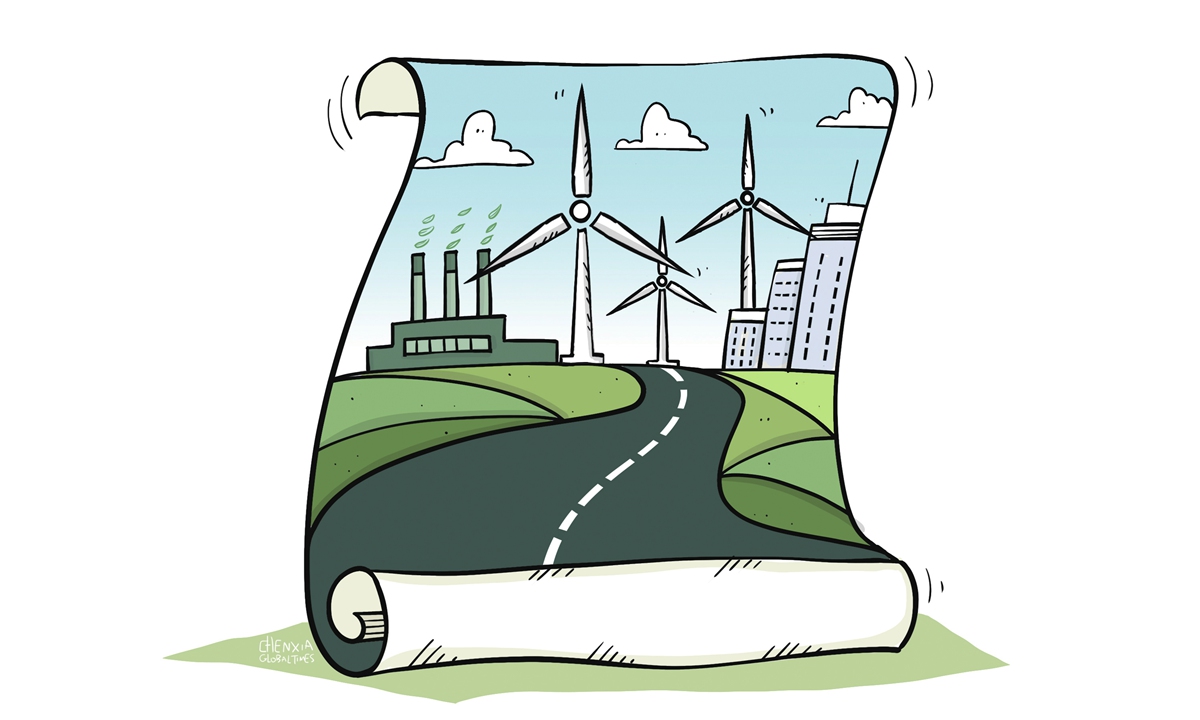
Ding Gang: China's future energy security dependent on de-Americanized strategy
Soaring energy prices have led to serious inflation in the US, which shows, once again, that the US' economic model is still under the traditional framework based on fossil energy. The energy transformation will experience a complicated and long process.
2021-12-03
























































































 京公网安备 11010802037854号
京公网安备 11010802037854号





